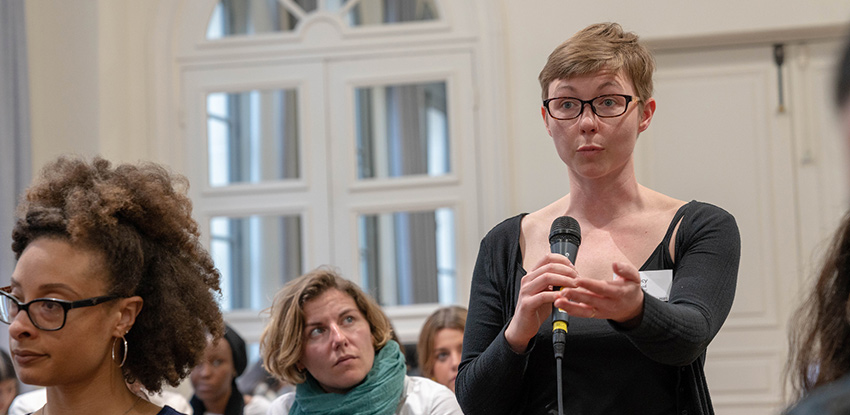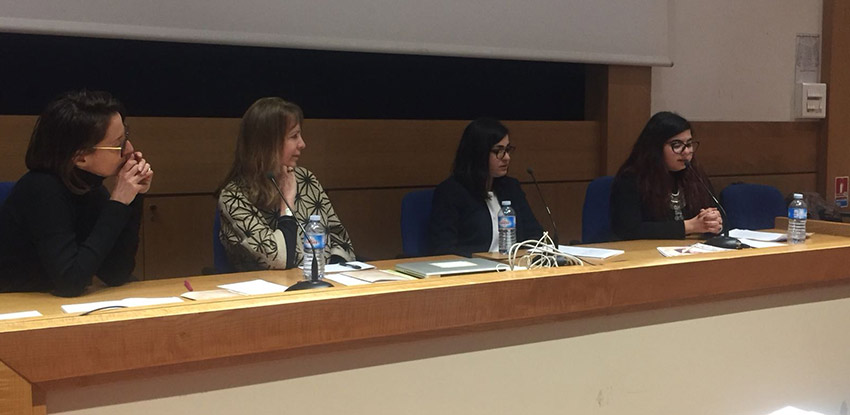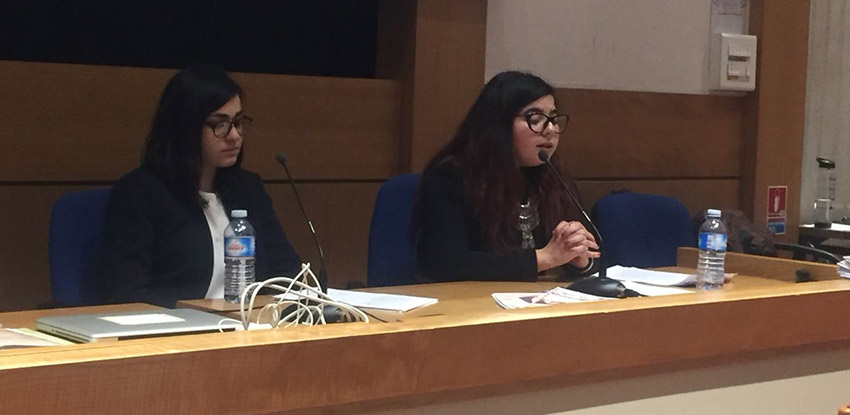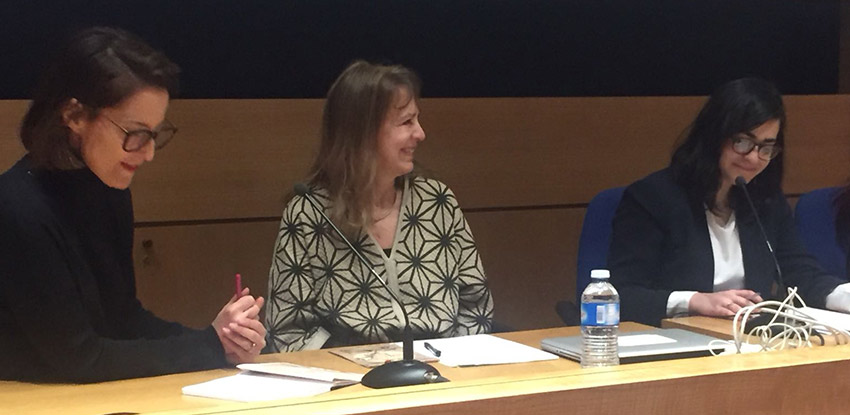- About AUP
- History of AUP
- Mission & Core Values
- Vision and Leadership
- AUP Recognition
- Alumni Success
- Campus Development
- Arts at AUP
- Policies & Guidelines
- Academics
- Undergraduate
- Graduate Programs
- MA in Diplomacy and International Law
- MA in Global Communications
- MSc in Human Rights and Data Science
- MA in International Affairs
- MA in International Affairs, Conflict Resolution, and Civil Society Development
- MSc in International Management
- MSc in Strategic Brand Management
- Find Your Thesis Advisor
- Previous Programs
- Cultural Program
- Faculty
- Summer School
- Research Centers
- The Center for Critical Democracy Studies
- Upcoming Events
- Research Projects
- Fellows’ Publications
- Publishing
- Curriculum
- Community
- Visiting Scholars
- CCDS Highlights
- Atelier de Théorie Politique – Paris
- Critical Theory 101: Future Directions and New Challenges
- Martti Koskenniemi on “The Law of International Society: A Road not Taken”
- Academic Freedom Symposium
- Tocqueville Colloque 2023
- Violent Turns Conference
- Degenerations of Democracy
- DEMOS21 Inaugural Event
- What Demos for the 21st Century?
- The Paris Centennial Conference
- Justice Stephen Breyer
- Civic Jazz - The Launch of the Center
- Past Events
- FR
- The Center for Writers and Translators
- The George and Irina Schaeffer Center for the Study of Genocide, Human Rights and Conflict Prevention
- The Joy and Edward Frieman Environmental Science Center
- The Center for Media, Communication & Global Change
- The Center for Critical Democracy Studies
- Departments
- Academic Resources
- Academic Affairs
- Academic Calendar
- Academic Resource Center
- Library
- Registrar's Office
- Teaching and Learning Center
- Employer Network
- Accessibility & Accommodation Services
- AI@AUP: A Campus-Level Initiative
- Quai D'Orsay Learning Commons
- Paris as Classroom
- ACE Center
- Admissions
- Student Life
- Campus
- Student Leadership & Involvement
- Paris
- Support Services
- Student Development Help Desk
- Student Accounting Services
- Student Immigration Services
- Student Grievance Procedure
- Diversity and Inclusion
- Health & Well-being
- Digital Student Handbook
- News
- Events
- AUP Giving
- Housing Offer for 2025-2026
- IT Services
- Alumni
- About AUP
- History of AUP
- Mission & Core Values
- Vision and Leadership
- AUP Recognition
- Alumni Success
- Campus Development
- Arts at AUP
- Policies & Guidelines
- Academics
- Undergraduate
- Graduate Programs
- MA in Diplomacy and International Law
- MA in Global Communications
- MSc in Human Rights and Data Science
- MA in International Affairs
- MA in International Affairs, Conflict Resolution, and Civil Society Development
- MSc in International Management
- MSc in Strategic Brand Management
- Find Your Thesis Advisor
- Previous Programs
- Cultural Program
- Faculty
- Summer School
- Research Centers
- The Center for Critical Democracy Studies
- Upcoming Events
- Research Projects
- Fellows’ Publications
- Publishing
- Curriculum
- Community
- Visiting Scholars
- CCDS Highlights
- Atelier de Théorie Politique – Paris
- Critical Theory 101: Future Directions and New Challenges
- Martti Koskenniemi on “The Law of International Society: A Road not Taken”
- Academic Freedom Symposium
- Tocqueville Colloque 2023
- Violent Turns Conference
- Degenerations of Democracy
- DEMOS21 Inaugural Event
- What Demos for the 21st Century?
- The Paris Centennial Conference
- Justice Stephen Breyer
- Civic Jazz - The Launch of the Center
- Past Events
- FR
- The Center for Writers and Translators
- The George and Irina Schaeffer Center for the Study of Genocide, Human Rights and Conflict Prevention
- The Joy and Edward Frieman Environmental Science Center
- The Center for Media, Communication & Global Change
- The Center for Critical Democracy Studies
- Departments
- Academic Resources
- Academic Affairs
- Academic Calendar
- Academic Resource Center
- Library
- Registrar's Office
- Teaching and Learning Center
- Employer Network
- Accessibility & Accommodation Services
- AI@AUP: A Campus-Level Initiative
- Quai D'Orsay Learning Commons
- Paris as Classroom
- ACE Center
- Admissions
- Student Life
- Campus
- Student Leadership & Involvement
- Paris
- Support Services
- Student Development Help Desk
- Student Accounting Services
- Student Immigration Services
- Student Grievance Procedure
- Diversity and Inclusion
- Health & Well-being
- Digital Student Handbook
- News
- Events
- AUP Giving
- Housing Offer for 2025-2026
- IT Services
- Alumni
Related Links
- Year in Review: India Practicum, January 2018
- Year in Review: UNICEF on Campus, February 2018
- Year in Review: Launching the GPS Program, March 2018
- Year in Review: Words That Kill, May 2018
- Year in Review: Summer at AUP, June 2018
- Year in Review: The Hemingway Conference, July 2018
- Year in Review: Honoring AUP Leadership, August 2018
- Year in Review: Orientation at AUP, September 2018
- Year in Review: Faculty Achievements, October 2018
- Year in Review: One Year of AUP Global, November 2018
- Year in Review: A New Home on the Seine, December 2018
As we move quickly towards a new year, we are taking a moment to look back at some of the highlights of 2018 with our series A Year in Review. For our April installment we asked AUP President Celeste Schenck to reflect on an incredible year for women at AUP, starting with an inspiring visit from Deborah Roberts.
In April, Deborah Roberts, AUP mother and journalist at ABC, spoke about her own personal experience as a woman journalist in difficult political times before a large group of AUP students. The audience was rapt with attention as she shared her experiences of coming of age during the women’s movement, and observing her daughter and young women more generally today at a different historical moment. Against the backdrop of her own remarkable personal trajectory, she outlined the issues women face today, highlighting statistics showing that women in the US are graduating college at higher rates than their male counterparts, but are still overrepresented in the lowest-earning tranche of workers and underrepresented in the highest-earning tranche. She asked: “How is it in 2018 we’re still struggling with pay inequality?” Roberts put the challenges women face in the context of the current historical phenomenon of the #MeToo movement and the shift in conversation it has engendered. “Now it’s time for the hard part: deciding how we’re going to coexist and how we’re going to rebuild. Where are we going to go from here?” She added that she hoped men would be allies in this fight: “We need men as allies if we’re going to see this new world order.”
Indeed, a great deal of thinking about women’s rights and roles in contemporary culture is taking place on the AUP campus – some of it around the theme of #MeToo, perhaps the most rousing international battle cry of last year. Last December, Maddison Haddix, a visiting independent student studying comparative literature, wrote an opinion piece for The Washington Post in which she recounted her experience as a teenage Senate page, stating unequivocally her reasons for opposing the re-election of Roy Moore of Alabama. She describes her non-partisan experience in the Senate: “I am a Democrat, [but] my appointing Senator Lamar Alexander is a Republican. I plan to vote for him when I reach legal voting age based on the incredible leadership and ethical code I witnessed while serving [as a page].” Maddison insists that “pages witness history, but in our own little way, we affect it, too.” She likes to think that Senators think of the pages as they are enacting legislation, imagining the impact it will have on future generations inheriting the laws they write. As she saw it, “Moore’s potential election to Senate is not just a betrayal of those women, but a betrayal of something much more fundamental: the trust that young people have in our leaders.” Maddison’s entire piece, in which she speaks up about a subject she holds dear, is here.
The hashtag #MeToo has had its day not only in the United States, but also in France where it purportedly had its origins in #BalanceTonPorc (translated rather brutally as “squeal on your pig”), and at AUP where students and faculty are reflecting together on the meaning and importance of speaking out against sexual violence of all kinds. Recently French actress Catherine Deneuve censured the #MeToo movement, bemoaning Anglo-American puritanism and the loss of la seduction between men and women, only to have her words deeply instrumentalized, as she saw it, by some other French women activists and speakers, which in turn led her to denounce those who had purportedly joined her cause wrongly, and to apologize to victims of sexual assault who felt offended by her position. Associate Professor Lissa Lincoln, who heads AUP’s growing Gender Studies Program and Major at AUP, presides over a range of thought-provoking courses at AUP that our students are taking to make sense of such timely issues: “Women, Empowerment, and Development,” “Law, Gender and Identities,” for example, and she even taught a course on “Masculinities” last spring. Professor Lincoln co-organized last spring two conferences on the topic, the first a colloquium on #BalanceTonPorc (with the Ecole des Hautes Etudes en Sciences Sociales and the French national research laboratory CNRS) and a second on “Orders of Violence” (in partnership with AUP’s George and Irina Schaeffer Center for the Study of Genocide, Human Rights and Conflict Prevention) dedicated to investigating political violence, exclusion and memory within marginalized communities, with particular emphasis on caste and genocidal violence. Inspiring to her students, Professor Lincoln is making global connections amongst American, French and vastly international combats for the dignity, safety and respect for women. In spring 2020, Dr. Lincoln will host, with her students, the Global Liberal Arts Alliance Institute on “Trans/national Feminisms: Pedagogies, Praxis, Politics” to which faculty and students from 26 different worldwide colleges and universities will be invited.
Similar to the advancements of gender studies through Dr. Lincoln’s work, our commencement ceremony in 2018 crowned our #MeToo year on campus, during which AUP’s gender studies program drew an unprecedented number of students to reflect on the importance of both safeguarding hard-won gains at home and building thoughtfully when seeking to improve the global condition of women. This year, student leaders and clubs, such as AUP4Consent, created awareness of violence against women by organizing events and educational campaigns, such as film screenings and a moving Take Back the Night candlelight vigil. During graduation in May, AUP had the privilege of bestowing honorary degrees on three women whose actions, art, politics, and pursuit of justice inspired our graduates: pioneering Finnish composer and opera librettist Kaija Saariaho, prizewinning American poet Claudia Rankine, and Rachael Denhollander, the first woman to speak out against US Olympics gymnastics doctor Larry Nasser. Essentially, we honored those who – at risk to themselves – crossed borders of all kinds with both generosity and courage, thereby inviting others to do the same.












